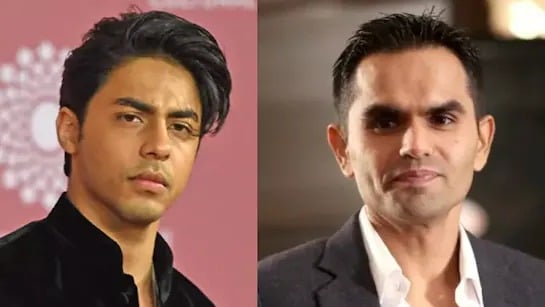The long-running controversy surrounding the 2021 Mumbai cruise drug case has resurfaced, this time in the courtroom of Delhi. Former Narcotics Control Bureau (NCB) zonal director Sameer Wankhede has filed a petition before the Delhi High Court, challenging the portrayal of his role in Aryan Khan’s upcoming project “The Ba**ds of Bollywood.”* Wankhede has argued that the film has been produced with the intent to malign his reputation and discredit his professional integrity.
In his plea, Wankhede has claimed that the depiction of events in the film goes beyond artistic liberty and ventures into defamation. The former NCB officer contended that the movie misrepresents facts about the high-profile drug case involving actor Shah Rukh Khan’s son, Aryan Khan, in which he had played a key investigative role. “This is not creative freedom—it is an attempt to rewrite events with malice, targeting me personally,” Wankhede reportedly argued in his petition.
The petition further stresses that the case had already placed Wankhede under immense public scrutiny, and any dramatized or fictionalized account naming or resembling him risks causing irreparable harm to his reputation and family life. Seeking relief, he has urged the Delhi High Court to restrain the makers from releasing the film in its present form, or at least to mandate the removal of content that directly associates him with negative portrayals.
The film, “The Ba**ds of Bollywood,”* has already attracted headlines for its provocative title and controversial subject matter. Marketed as a gritty take on Bollywood’s underbelly and the intersection of fame, drugs, and law enforcement, the project has sparked debate about the fine line between storytelling and sensationalism. With Aryan Khan reportedly connected to the project, the stakes are even higher, as critics see it as both a creative endeavor and a personal attempt to reclaim his narrative after the traumatic 2021 episode.
Legal experts point out that this case raises important questions about freedom of expression versus the right to reputation. Indian courts have often grappled with such tensions, especially when films and media productions are inspired by real events. While Article 19 of the Constitution protects free speech, it does not grant immunity from defamation claims. Courts have, in the past, ordered cuts, disclaimers, or even stayed releases if content was found to cause undue harm to individuals.
For Wankhede, the petition is also about professional credibility. As a career officer, his reputation as a law enforcement official is central to his legacy. Any portrayal suggesting misconduct, corruption, or vendetta-driven action could, he argues, permanently damage his standing and overshadow his years of service. The timing of the film, arriving just as public memory of the Aryan Khan case remains fresh, adds to his concern.
The Delhi High Court is expected to hear the matter soon, and its ruling could set a precedent for future cases where real-life figures are depicted in films inspired by contemporary controversies. Observers believe that the court may weigh options such as mandating disclaimers clarifying fictionalization, requiring edits to contentious scenes, or balancing both parties’ rights through conditional clearances.
In the larger picture, the Wankhede-Aryan Khan legal clash reflects how Bollywood, politics, and law enforcement often intersect in India’s public imagination. The cruise drug case had already generated a national media storm; its dramatization through cinema is now reigniting old debates about fairness, accountability, and narrative control.
Whether the Delhi High Court sides with Wankhede’s plea for restraint or upholds the filmmakers’ right to creative freedom, the outcome is bound to resonate far beyond the courtroom—shaping both the trajectory of the film and the enduring legacy of a case that continues to polarize opinion.



